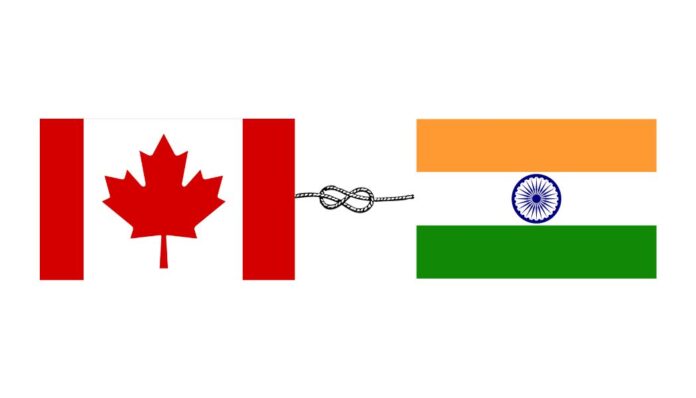Forty-one Canadian diplomats have left India as of Oct. 19, following India’s threat to revoke their diplomatic immunity.
This demand stems from the current political tension between Canada and India, after Prime Minister Justin Trudeau’s accusation in September that the Indian government played a part in the murder of prominent Sikh independence activist Hardeep Singh Nijjar in B.C.
“[India] is a failing liberal democracy and by the next election in 2024, it may have failed completely,” said St. Thomas University’s international relations professor Shaun Narine.
“The idea that the Indian government is running around murdering people is not that far off from what is actually [happening in India].”
Narine notes that the Canadian Security Intelligence Service warned Nijjar before the murder that his life could be in danger. Nevertheless, he said India has responded “furiously” to the accusations.
Nijjar was part of a Sikh separatist movement that advocates for an independent homeland in Punjab called Khalistan. The Indian government sees this movement as a terrorist organization.
After the accusations, India suspended visa services to Canadians looking to visit India. Narine said this is a “brilliant strategy” on India’s part, considering the large Indian diaspora in Canada, which includes both Hindus and non-Hindus.
“They may be quite angry over the situation,” said Narine. “The Indian government hopes that this becomes a political problem for the Liberal government at some point.”
According to CBC, students from India make up 45 per cent of Canada’s international student population. This situation creates tension for those students.
“This situation, according to me, it feels like two siblings are fighting amongst themselves,” said first-year international student from India, Shikshit Singh.
Although Singh has not been personally affected by the visa suspensions, he has cousins who are now unable to visit India. Furthermore, his family back home warned him to be cautious in light of the conflict.
“My father was worried about me. He says ‘don’t go to downtown,’” said Singh.
Similarly, third-year international student Dhruv Manish was warned by his parents and mentioned feeling worried about how people would perceive him.
“In the beginning, it did affect me a lot because I was like ‘oh, people are gonna see me differently,’” he said.
Now, Manish is mainly worried about the effect this conflict will have on the international students and immigrants from India that now reside in Canada.
“There’s been quite a strain,” he said. “Knowing about the massive amount of students and immigrants that come to Canada from India. It’s a scary decision on India’s part.”
For Narine, the decision is a calculated one. He mentions the importance of geopolitics in India’s position as an “indispensable” ally to the United States in its efforts to undermine China. As such, Canada’s decision to accuse India has not been supported by its western allies.
“Canada really needed the support of its allies if it was going to make an issue of this … and the message you got instead was ‘India is much too important for this to become an issue between us,’” said Narine. “The West is in it to preserve its power and its influence over the international system. The irony is this: India has no interest in letting the West rule the world forever.”
As for the future, there is currently no word on when visa suspensions may end. For Narine, there is only speculation.
“Probably what will happen over time is nobody will talk about this. And eventually, maybe a few months or a year from now, India will lift the restriction on visas and everyone will kind of pretend that it’s gone away.”

